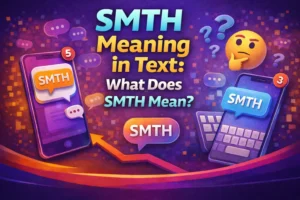The process of hunting is full of hope, waiting, and, unfortunately, being vulnerable. You open up in your pursuit of the ideal career opportunity, and you share personal information and career goals. And this is exactly the weakness that fraudsters and rogue recruitment companies use. Such fraudulent activities are not only a waste of time, but they can also steal your identity, empty your wallet, and destroy your self-esteem.
Nowhere is it more important to know what is a reasonable offer and what is an elaborate scam than in an era when remote work is a normal occurrence and online communication is the new reality. This article reveals the warning signs of recruitment fraud and provides a list of types of agencies and particular scams that you need to know about to avoid falling victim.
Red Flags to Keep in Mind: The Hallmarks of a Fake Recruitment Agency
We should first have a general idea of the common warning signs before we get down to names and categories. When any of these appear in an agency, act with great caution, or get out of the way altogether.
- The Upfront Fee: This is the largest red flag, and it cannot be bargained with. Recruiters and legitimate employers will never request their applicants to pay in order to secure a job. Any offer to make a payment towards training, background checks, processing fees or software licenses is a scam.
- Too Good to Be True Offers: An email promise of an extremely high pay rate with very little effort, particularly for a position that you did not apply to in the first place, is nearly universally a trap. When it sounds too easy then it is.
- Poor communication and branding: Spoiler alert: the email address used is generic (e.g., Gmail, Yahoo) and not a company name. Numerous grammatical errors, improper formatting, and vague job descriptions are giant red flags in the form of an email.
- Sense of Urgency: Scammers make it sound like their offer is only available in a limited amount and therefore you cannot afford to lose any time. Their reasons could be that the position is filling the job fast or that the job has a time limit of 24 hours.
- Request for Highly Sensitive Information: Be cautious with any request for your bank account information, social security or passport copy earlier in the process, particularly prior to an interview.
- Imprecise or Non-Existent Internet Presence: An actual agency will possess a professional website, a functioning social networking page on LinkedIn, and a web presence. The lack of these or very thin profiles with very little content or activity is a warning sign.
So, now we will see what the exact kinds and names have been attached to these deceptive practices.
Top 10 Fake Recruitment Agencies and Recruitment Scams to Avoid

1. The “Advanced Fee" Fraud (A Generic Threat)
Instead of a single name, this is a common model. An agency may approach you with an official-sounding name such as “Elite Career Connect” or “Global Talent Seekers.” They will interview and make an offer that is too good to be true. The catch? You have to pay a single charge for the so-called mandatory training, administrative processing or equipment shipping. Once you pay, they disappear.
2. Money Mule Recruitment Scam
You are recruited into a remote financial manager position or a payment processing agent position. The agency (usually with a generic name) tells you that you will be getting payments deposited into your personal bank account and then sending them to another account, retaining a commission. As a matter of fact, you are washing stolen money. You end up in a bad place, legally responsible, and the bank account has been shut, and the criminals are gone.
3. False agencies pretending to be legal agencies
Fraudsters usually masquerade as actual reputable companies. They duplicate logos, make false websites with similar URLs (e.g., .net, not .com) and similar names. Watching the URL is important, and always go straight to the company site using Google instead of clicking on links in an email.
4. SWVI Jobs / Southwest Virtual Inc. Ponzi Scheme
This has remained a long-term scam against remote job seekers. The victim gets an email congratulating him on a job that he had not applied for, with a professional-looking letter of offer. The fake check is often sent to deposit the money to buy home office equipment from a fake vendor (the scammer). The check bounces, and you lose the money you sent.
5. Data Harvesting Operations
Not all bogus agencies are seeking your money right now; they are seeking your information. To gather hundreds of resumes filled with personal data like names, addresses, phone numbers, and employment history they place attractive fake employment advertisements on large boards. This information is then traded on the dark web to be used in identity theft and phishing.
6. Uber or Amazon via WhatsApp/Telegram users are "recruiters" of the companies.
A widespread fake message is now sent via the messaging service of a large company such as Uber, Amazon, or Delta Air Lines. They provide high-paying jobs that can be done flexibly, such as rating hotels or making online purchases to increase sales. They want to win your trust and take money or private data.
7. The "Modeling & Talent" Scam
Catering to would-be models, actors, and performers, these agencies (usually with glamorous, upscale names) lure individuals in with the promise of fame. They take advantage of them by charging them extremely high prices to do a photoshoot, comp cards, or portfolio packages that never result in any actual work.
8. "Bait-and-Switch" Agencies
You apply for a particularly attractive position. The agency questions you and claims that you would be better suited to work elsewhere (probably less desirable) (e.g., commission-only sales, multi-level marketing). They employed the bogus listing as part of a trap to get you through the door.
9. "Crew Training International" / Maritime Scams
The maritime sector becomes a target of the scam which promises well-paid employment on a cruise ship or oil rig. Agencies such as Crew Training International have been red-flagged and charged thousands of up-front fees in an effort to get them to take a certification course or place them in jobs that do not exist.
10. The Fake Interview Phishing Scam
You arrange a video interview, and the recruiter says that he has a broken camera. It is an interview conducted through chat. Instead, they can send a link to a mandatory skills test that in fact is malware that will infect your computer and steal your information.
How to shield yourself: Job seekers' shield
- Do Your ReSearch: Google the name of the agency as well as the scam, reviews, or legit words. Look at the Better Business Bureau (BBB) and other reputable websites such as Glassdoor and Trustpilot.
- Check Contact Details: You need to ensure that the phone number, email and physical address on their site are valid and consistent. There should be a physical office that can be verified to exist, not a P.O. box.
- You Suck: When it is not working, it is probably not. Do not get so desperate in trying to find a job that you lose your head.
- Never Pay for a Job: This cannot be emphasized enough. Employers rather than employees are charged fees.
- Protect Your Personal Data: Do not give your Social Security Number, bank data, credit card data, etc. without fully researching the company and signing a contract with it when you are offered a legitimate job.
What to do when you have come across a scam
- Cease All Communication. Answer no additional emails and calls.
- File a complaint against the Federal Trade Commission (FTC) at ReportFraud.ftc.gov. Additionally, notify the site that you have been posted to of the fake job listing (e.g., LinkedIn, Indeed, ZipRecruiter).
- Give back: Visit job sites and social media websites to give feedback to other potential employees.
The employment arena is a hard place without the element of duping. However, with proper caution, awareness of the red flags, and proper research of all the opportunities, you can safely work your way through the career path and not fall into the expensive and uncomfortable traps of the fake recruitment agencies. There is a dream job that exists; it just has to be a company that appreciates you, not your wallet.
FAQs
1. What can I do to find a bogus recruitment agency?
Look at advance charges, ineffective communication, generic mail, and unverifiable internet presence.
2. Do genuine recruitment firms ever demand any money?
No, honest recruiters do not charge the candidates; the employers do.
3. What shall I do when I have paid money to a rogue recruitment agency?
Immediately cease communication, report the scam to the FTC or local authorities and call your bank.
4. Are WhatsApp or Telegram job opportunities real?
Typically, no, they are mostly fake big company sites such as Amazon or Uber.
5. Are fake companies able to imitate legitimate company names and logos?
Yes, counterfeit agencies usually copy legitimate websites with little variation in domain names.
6. Are modeling agencies that demand a pre-upfront photoshoot charge valid?
No, the actual talent shops do not make money off your work, not a costly out-of-the-gate package.




